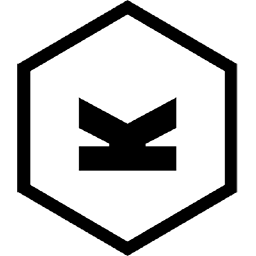Best Flat File CMS
 Flextype
Flextype
Flextype is super fast headless content management system with an elegant architecture and built-in smart cache.
👍 Most people think this is a good recommendation.
 Grav
Grav
Grav is a modern free and open source flat-file content management system. With Grav, you can publish content and build sites in a fast, flexible and simple manner with the file-based web platform. Grav requires zero installation and is just an zip archive that can be extracted to start using the CMS. Grave also comes with a powerful package management system that allow you to extend the feature set of Grav CMS. With the package management system you can install and upgrade themes and plugins written specifically for Grav. The software is written in PHP and released fully free and open-source under the MIT License.
👍 Most people think this is a good recommendation.
 Kirby
Kirby
Kirby is a flat file content management system written in PHP. Kirby adapts to any project and can be used by developers, designers, creators and clients to create websites for businesses and personal use.
Extremely Fast
👍 Most people think this is a good recommendation.
 WonderCMS
WonderCMS
WonderCMS is the smallest flat file content management system. The CMS is built with PHP and has been developed since 2008. No initial configuration required to setup the WonderCMS, the installation is straight forward and simply requires you to unzip and upload 5 files.All data within WonderCMS is structured as JSON format and the flat file nature of the content management system also allow you to migrate hosts easily by transfering files across, no database migration required.
👍 Most people think this is a good recommendation.
 Statamic
Statamic
Statamic is a flat file based content management system written in PHP. With Statamic you can build better and faster websites that are easy to manage. Statamic features over 40 field types, drag & drop navigation builder, revision and content history, inline content editing, asset management, plugin architecture and real-time collaboration that makes content management a breeze.
 Batflat
Batflat
Batflat is fast, database-less CMS written in PHP. Batflat weighs in on 1024 kilobytes and it has all features you have come to enjoy from other content management systems like WordPress. You can also download or create your own extensions for Batflat, allowing you to build features on top of the core and create unique experiences for the end-user.
 Saaze
Saaze
An all-inclusive, flat-file CMS for simple and fast content management. While regular content management systems like WordPress are great, the complexity of running sush a site can easily become a burden. They also have a larger attack vector due to popularity and the fact that they utilize a relation database mangement system to serve and manage the content. Saaze is fundamentally different, the flat-file architecture of Saaze makes hosting content for the web easy to manage, secure and fast to load.
 HTMLy
HTMLy
HTMLy is an open source databaseless blogging platform. A Flat-File Blog and Flat-File CMS written in PHP prioritizes simplicity and speed.
 Automad
Automad
With Automad you can manage content easier than ever. Automad is a file-based content management and template engine that allow you to create fast website without the need of a database. Instead all content is stored in human readable text files which makes it easy to put a whole site under version control with Git. The elegant admin panel provided by Automad includes a block editor and the in-page editing capability. You can also extend the core of Automad by creating your own packages or making use of the once already created by the community.
 Bludit
Bludit
Bludit is a content management system that allow you to build your own website or blog in seconds, it's completely free and open source. Markdown support. The flat file architecture of Bludit makes your websites extremely fast, while still allow you and your team to manage content the way you would in other popular content management systems like WordPress, Joomla and Drupal. Without relying on databases like MySQL or complicated DevOps workflows.






